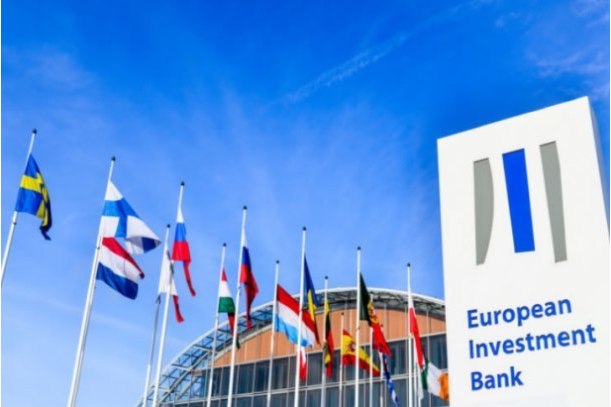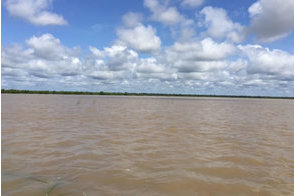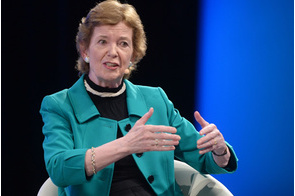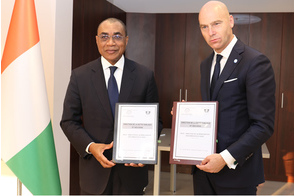Europe must become a global climate power

Summary
The urgency of the climate crisis demands that the EU turn its world-leading climate agenda into foreign policy.
The world is eagerly watching the rollout of COVID-19 vaccines and looking forward to a return to normalcy after a year of lockdowns. But there will never be a vaccine for the other looming threat to humanity: climate change.
Apocalyptic images of forest fires in California and devastating floods in Bangladesh are harbingers of what awaits us if we fail to address the climate emergency. Without drastic action, such catastrophes will rage more frequently and ever more destructively. Moreover, climate change is one of the biggest geopolitical challenges we face. As a conflict multiplier, it fuels sociopolitical instability, creates migratory pressures, aggravates global injustices, and jeopardizes human rights and peace, especially in fragile states.
Climate scientists have made clear that to limit the rise in average global temperature to 1.5° Celsius above pre-industrial levels – the target of the Paris agreement – the world can emit only another 580 gigatons of carbon dioxide. That is our carbon budget – forever. Yet at the current global emissions rate of about 37 gigatons per year, we will have exhausted our budget by 2035. We therefore need to decarbonize without delay. Since the world has already warmed by 1.1°C, with temperatures in many regions having gone much higher, the next decade represents our last chance to tackle the problem.
The European Union has been a global leader on this issue for decades, and it has stuck to its ambitions even through the COVID-19 crisis. Among other things, the EU has launched what European Commission Executive Vice President Frans Timmermans has rightly called “the world’s greenest stimulus plan.” With the European Green Deal, the EU has also increased its 2030 emissions-reduction target to 55%, and committed to achieving carbon neutrality by 2050.
To support this effort, member states have agreed to transform the European Investment Bank into the EU’s Climate Bank. As outlined in the Climate Bank Roadmap 2021-2025, the EIB Group aims to mobilize €1 trillion ($1.2 trillion) of investment in climate action and environmental sustainability between 2021 and 2030. It is the first multilateral development bank in the world to be fully Paris-aligned in its operations.
To be truly effective, however, Europe must complement these internal efforts with a proactive foreign policy. In a world where the EU accounts for less than 8% of global emissions, our climate efforts cannot be limited to our continent. If we allow growing energy demand in Africa and parts of Asia to be met through additional coal- and gas-fired power plants financed by China or others, our hope of limiting global warming will literally go up in smoke. We must convince our global partners to embrace our ambition, and we must push – or help – them to take the necessary action.
To that end, Europe will need to put its economic and diplomatic weight behind the climate cause, becoming a global power in climate diplomacy. We must combine our climate efforts with realpolitik, recognizing the incontrovertible links between innovation and sustainable development. Only through innovation can we ensure Europe’s future competitiveness and tackle the climate challenge both inside and outside our borders. And only through innovation and green investment can we boost economic resilience in Africa and beyond.
Europe has the tools to make a difference globally. As one of the world’s largest markets and trading blocs, the EU has the power to set rules and standards for imported goods and services. We already have a wide range of trade agreements and strategic partnerships with countries and regions around the world; and, together, the EU and its member states are the world’s leading donor of development aid and humanitarian assistance. Finally, with the EIB, the EU has the largest multilateral lender at its disposal.
The EIB’s firepower is sorely needed. According to the United Nations Conference on Trade and Development, to achieve our 2030 climate and sustainable development goals requires closing an annual investment gap of approximately $2.5 trillion. We cannot rely only on the public sector anywhere, but especially in less-developed regions. As a public-finance institution and pioneer in green bonds, the EIB has an important role to play both in redirecting private finance toward sustainable investment projects globally, and in ensuring (through its banking and engineering expertise) that all projects make economic sense.
To have a global impact, the EU must vigorously deploy all of the instruments at its disposal. For example, all current EU efforts to address the social and economic damage caused by COVID-19 in neighbouring regions should be designed and implemented with the broader climate agenda in mind.
Moreover, other development banks should follow the EIB’s example by aligning their operations with the Paris targets, in order to lock in low-carbon, climate-resilient development pathways (or, at a minimum, to avoid undermining the green transition).
The UN Climate Change Conference in Glasgow (COP26) in November will be a crucial milestone for raising global ambitions. Unlike previous COPs, it will be less about new multilateral rules and more about ensuring that as many countries as possible – especially the big emitters – strengthen their commitments. Next week, EU foreign ministers will discuss how to set the tone to ensure success in Glasgow, and how to develop our climate and energy diplomacy to promote the European Green Deal’s external dimensions.
Accelerating climate action and managing the energy transition must be at the core of EU foreign policy and in our work with partners around the world. In this regard, we welcome the decision by US President Joe Biden to rejoin the Paris agreement on his first day in office. What we do today will set a course for decades to come. We intend to make 2021 a defining year in which Europe puts its full diplomatic and financial weight behind the global fight against climate change. As UN Secretary-General António Guterres has put it, this is the “defining issue of our time.”
Josep Borrell, a Vice President of the European Commission, is EU High Representative for Foreign Affairs and Security Policy. Werner Hoyer is President of the European Investment Bank. Copyright: Project Syndicate
Related
-
PPP to help enhance Africa's climate resilience
Investment in hydromet services is said to be smart investment that has a fivefold or greater returns, with significant ...
-
Interview: Mary Robinson
Climate change isn’t gender-neutral; women bear the brunt of its effects.
-
Global Centre on Adaptation to Support Côte d’Ivoire on ESG projects
MoU aims to enhance and increase the share of adaptation and resilience investments financed by Côte ...










